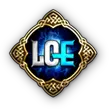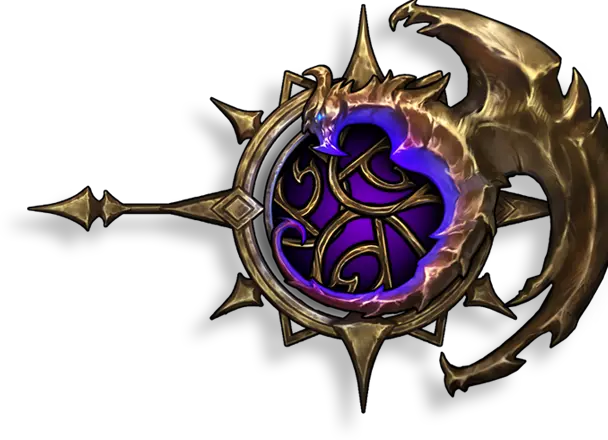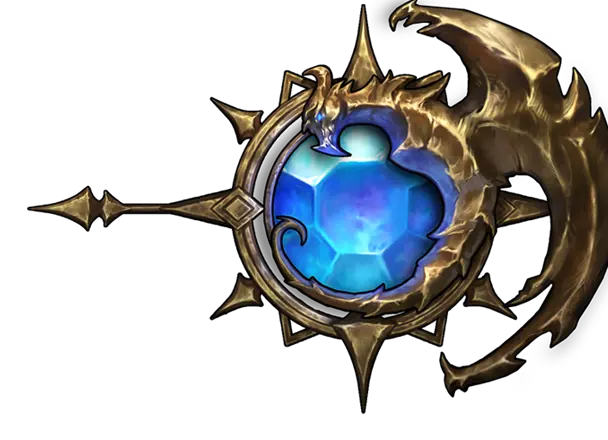Legends of Elysium vs Munchkin Cthulhu
Munchkin Cthulhu: An In-Depth Analysis
Tactic in Munchkin Cthulhu
In Munchkin Cthulhu, tactical play revolves around immediate decisions that influence your standing in the game. Effective card management is crucial; knowing when to deploy powerful items or curses can turn the tide in your favour. Engaging in combat requires careful assessment of your current strength relative to the monsters you face, as well as the potential for opponents to interfere. Additionally, the game encourages negotiation and alliances, albeit temporary, to overcome formidable challenges. However, be wary of the Cultist mechanics, as becoming a Cultist can have significant implications on your gameplay.
Strategy in Munchkin Cthulhu
Strategically, the game demands long-term planning to reach Level 10 before your adversaries. Balancing the accumulation of levels and treasures is essential; focusing solely on one can leave you vulnerable. Deciding whether to embrace or avoid becoming a Cultist is a pivotal strategic choice, as it affects your abilities and interactions with other players. Timing your ascent to higher levels is also critical; advancing too quickly may paint you as a target, while lagging can leave you at a disadvantage. Cultivating a reputation as a cooperative player can be beneficial, but always be prepared for the inevitable betrayals that define the game’s dynamic.
Collectible Aspect in Munchkin Cthulhu
Munchkin Cthulhu is a stand-alone game that lampoons Lovecraft’s Mythos and the horror gaming that surrounds it. This set features four new Classes—including the Cultist—and a lot of classic monsters from outside reality. The game includes 168 cards, one six-sided die, and these rules. While it can be combined with other Munchkin games, it does not follow the traditional collectible or expandable model of TCGs/CCGs. Therefore, there is no collectible aspect in Munchkin Cthulhu.
Trading Aspects in Munchkin Cthulhu
Munchkin Cthulhu does not incorporate trading aspects commonly found in TCGs/CCGs. The game is self-contained, and players do not trade cards outside of gameplay. Therefore, there are no trading aspects in Munchkin Cthulhu.
Gameplay Mechanics in Munchkin Cthulhu
The game employs a card-based system where players “kick down the door” to encounter monsters, curses, or other events. Combat is resolved by comparing player strength, augmented by items and allies, against monster levels. Victory yields treasures and levels, while defeat may result in penalties or the need to flee. The introduction of the Cultist class adds a unique twist; players can become Cultists through specific cards, gaining certain advantages but also facing potential drawbacks. The game supports 3 to 6 players and includes 168 cards, one six-sided die, and these rules.
What Sets Munchkin Cthulhu Apart
- Humorous Lovecraftian Theme: The game parodies the Cthulhu Mythos, blending horror elements with humour, creating an engaging and entertaining experience.
- Standalone Yet Compatible: While it is a complete game on its own, Munchkin Cthulhu can be combined with other Munchkin sets for expanded gameplay.
- Unique Cultist Mechanics: The addition of the Cultist class introduces new strategic dimensions, influencing player interactions and game outcomes.
In summary, Munchkin Cthulhu offers a distinctive blend of humour, strategy, and player interaction, setting it apart from traditional TCGs/CCGs. Its unique mechanics and thematic elements provide a fresh and engaging experience for players seeking a light-hearted yet strategic card game.
Legends of Elysium Compared to Munchkin Cthulhu – Gameplay Mechanics
In Legends of Elysium (LoE), gameplay mechanics go beyond traditional card game conventions by integrating a hex-based tactical board system. Players must not only manage their decks but also master the spatial elements of the battlefield. This contrasts with Munchkin Cthulhu, where gameplay revolves around drawing cards, battling monsters, and reaching Level 10. In LoE, victory depends on controlling the board through strategic terraforming and tactical unit placement, making each move impactful. Unlike Munchkin’s lighter, humorous approach to encounters and cooperative mischief, LoE demands deep foresight and careful resource management, turning each turn into a complex decision-making puzzle. The game rewards long-term planning by tying card effects to land control and hero abilities, creating a multilayered experience that challenges players to adapt to an ever-changing battlefield.
Legends of Elysium Like Munchkin Cthulhu – Similarities
At their core, both Legends of Elysium and Munchkin Cthulhu thrive on dynamic player interactions and unexpected twists, making each session unpredictable and engaging. Both games rely heavily on card-based mechanics where players draw, play, and adapt to ever-changing scenarios. The essence of progression through levels, whether it be reaching Level 10 in Munchkin Cthulhu or strategically advancing your board presence in LoE, demands that players balance offence, defence, and resource management. Additionally, humour plays an important role in both, though expressed differently—Munchkin Cthulhu delights in its parody of Lovecraftian horror, while LoE incorporates narrative depth and player-driven storytelling. The social aspect of alliances and betrayals also resonates within both titles, fostering a sense of camaraderie that inevitably gives way to competitive tension as players strive for victory. Most importantly, both games reward quick thinking, adaptability, and the ability to navigate chaotic game states with poise and strategy, ensuring that no two games are ever the same.
Legends of Elysium vs Munchkin Cthulhu – Key Differences
While both Legends of Elysium and Munchkin Cthulhu share a love for tactical gameplay and humorous interactions, their core approaches diverge significantly. LoE elevates strategic complexity through its hex-based board system, demanding players to control terrain and manage long-term resources, creating a layered battlefield that rewards foresight. In contrast, Munchkin Cthulhu focuses on fast-paced, light-hearted card draws and unpredictable encounters, leaning heavily on humour and social dynamics. Additionally, LoE integrates blockchain technology, allowing players to own digital assets, trade cards in a secure marketplace, and earn in-game rewards with real-world value—a feature absent in Munchkin Cthulhu. Furthermore, LoE offers multiple victory paths through board control, resource management, and custom hero builds, whereas Munchkin keeps its win condition simple: reach Level 10. These differences highlight LoE’s focus on a deeply immersive experience built for long-term mastery, while Munchkin Cthulhu caters to a more casual, fun-focused gaming session with unpredictable outcomes.
Tactic and Strategy in Legends of Elysium
In Legends of Elysium, victory is not gifted but earned through tactical brilliance and strategic foresight. The game demands that players master both short-term tactics and long-term strategies to outwit their opponents. On the tactical front, players must decide the best use of their resources each turn, balancing between summoning units, casting spells, and terraforming the hexagonal board to gain critical advantages. The placement of units on the board is not random but a calculated move that can control key areas and deny your opponent crucial hexes. Meanwhile, the strategic layer runs deeper, as players must carefully build their decks to complement their chosen hero and class. Understanding synergies between cards and anticipating enemy tactics is vital. Unlike the chaotic fun of Munchkin Cthulhu, where luck often dictates outcomes, LoE rewards players who plan their moves several turns ahead, adapt to shifting battlefield conditions, and maintain control over both their hand and the terrain. In LoE, every choice carries weight, making each battle a test of wit, adaptability, and perseverance.
Legends of Elysium as Alternative to Munchkin Cthulhu
For those seeking a more complex, immersive adventure beyond the humour-filled chaos of Munchkin Cthulhu, Legends of Elysium offers a deeply strategic alternative. While Munchkin Cthulhu thrives on quick, light-hearted gameplay and spontaneous alliances, LoE challenges players to craft long-term strategies, carefully manage resources, and navigate a dynamic hex-based battlefield. The game rewards tactical foresight and adaptability, giving players the tools to shape their destiny through precise decision-making. Unlike Munchkin Cthulhu, where success often hinges on luck and playful sabotage, LoE prioritises skill, offering multiple paths to victory—be it through board control, hero specialisation, or clever deck-building. Moreover, LoE’s blockchain integration introduces real-world asset ownership, transforming your collection into a tangible investment, a feature absent in traditional card games. For heroes ready to trade comedic chaos for tactical mastery and a richer narrative experience, Legends of Elysium beckons as the ultimate battlefield where wit and wisdom reign supreme.
Conclusion
Legends of Elysium stands as a beacon for those who crave a deeper, more rewarding gaming experience—one that challenges both the mind and the imagination. Unlike the light-hearted chaos of Munchkin Cthulhu, LoE demands careful thought, strategic planning, and tactical mastery. The richly woven lore of Elysium invites players to step into a living, breathing fantasy world, where every battle tells a story and every hero’s journey shapes the game’s evolving narrative. This is not a game for those who seek luck-based victories; it is a call to arms for strategists, tacticians, and dreamers ready to prove their mettle on the hexagonal battlefield. Are you prepared to build your legend, outwit your opponents, and carve your name into the annals of Elysium’s history? The challenge awaits—step forth and become the hero this world needs.
| Aspect | Legends of Elysium | Munchkin Cthulhu |
|---|---|---|
| Gameplay Mechanics | Hex-based board system with tactical and strategic depth. Players manage resources, terrain, and units to achieve victory through multiple paths. | Card-based system with randomised encounters. Focuses on levelling up by defeating monsters and using items or curses. Heavily luck-driven. |
| Similarities | Both games rely on card-based mechanics, player interactions, and unpredictable outcomes. Progression requires balancing offence, defence, and resource management. | Similar reliance on cards, humour, and social dynamics. Encourages alliances and playful betrayals to achieve victory. |
| Key Differences | Focuses on strategic depth and tactical decision-making. Integrates blockchain for real asset ownership and play-to-earn mechanics. | Quick, humorous gameplay with less focus on strategy. No trading or ownership features outside of gameplay. |
| Tactic and Strategy | Rewards long-term planning, precise resource management, and adaptability. Multiple paths to victory through hero customisation, deck-building, and board control. | Short-term tactics dominate. Players must quickly adapt to random events, with alliances and betrayal shaping gameplay outcomes. |
| Alternative Appeal | Offers a more complex, immersive experience with rich fantasy lore. Appeals to tacticians and strategists seeking a deeper challenge. | Ideal for casual, humour-driven gameplay with friends. Focuses on quick sessions and spontaneous fun rather than long-term strategy. |
| Conclusion | A deeply rewarding game for those who seek tactical mastery and long-term planning. Players build their legend in a dynamic, ever-evolving fantasy world. | A light-hearted, fun game for players who enjoy humour and chaotic gameplay. Less focused on deep strategy and more on social interactions. |







